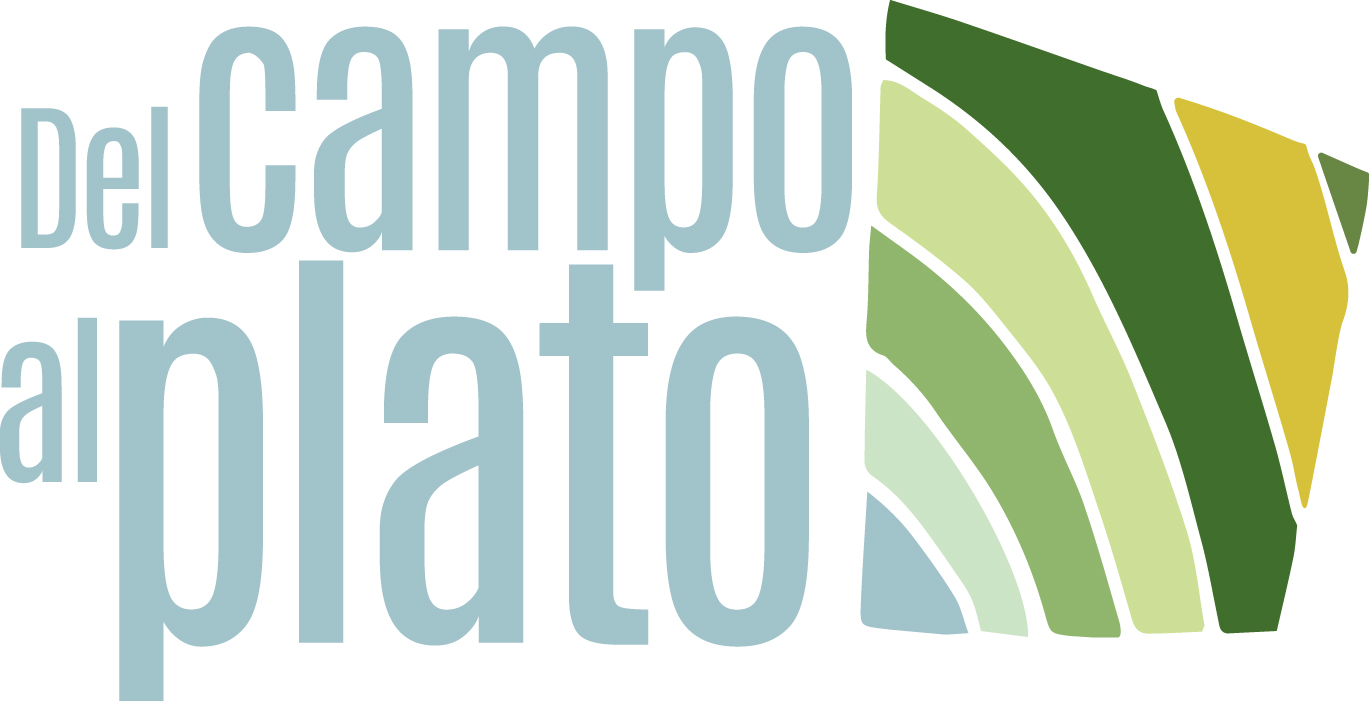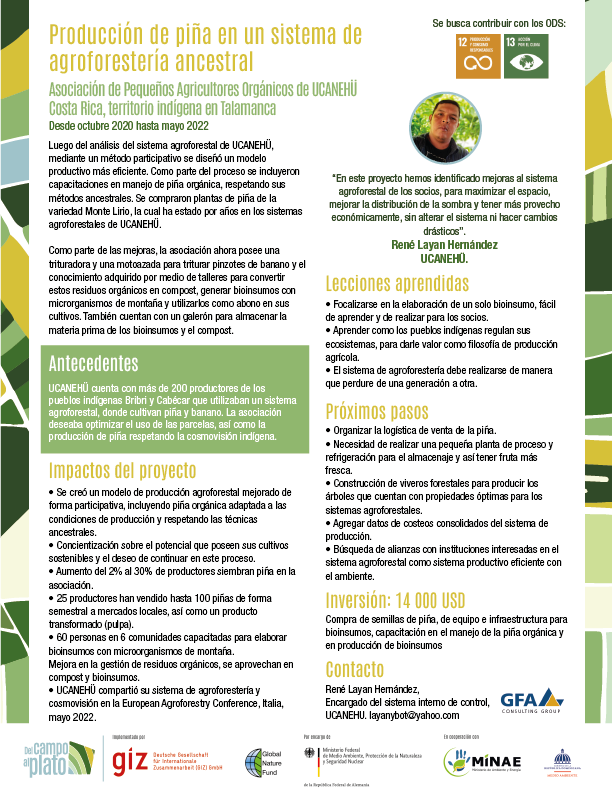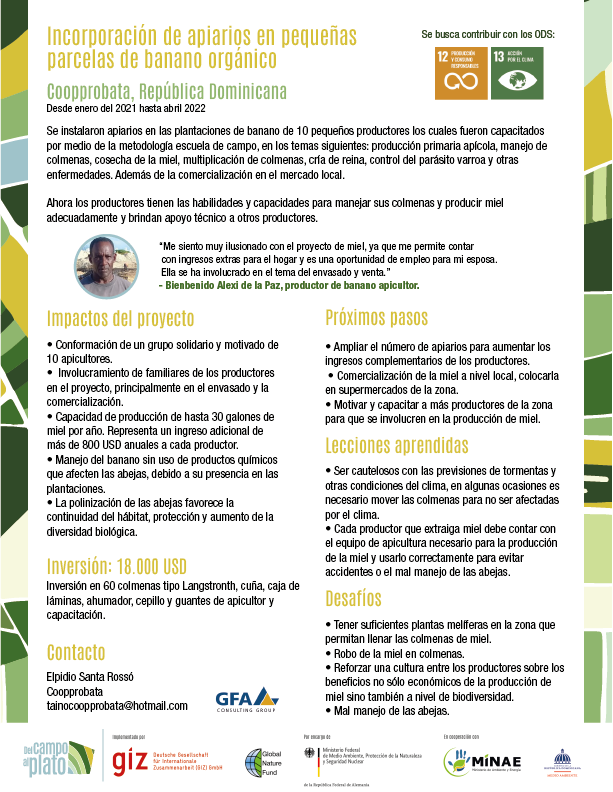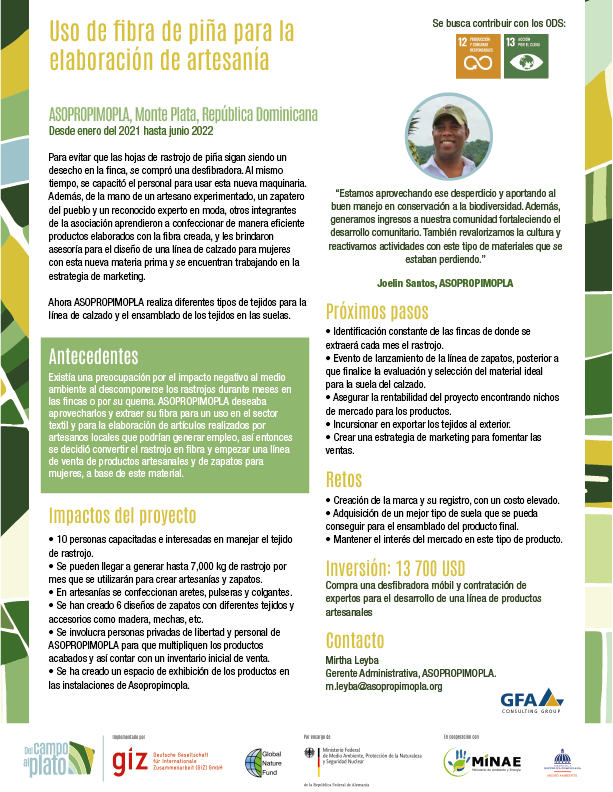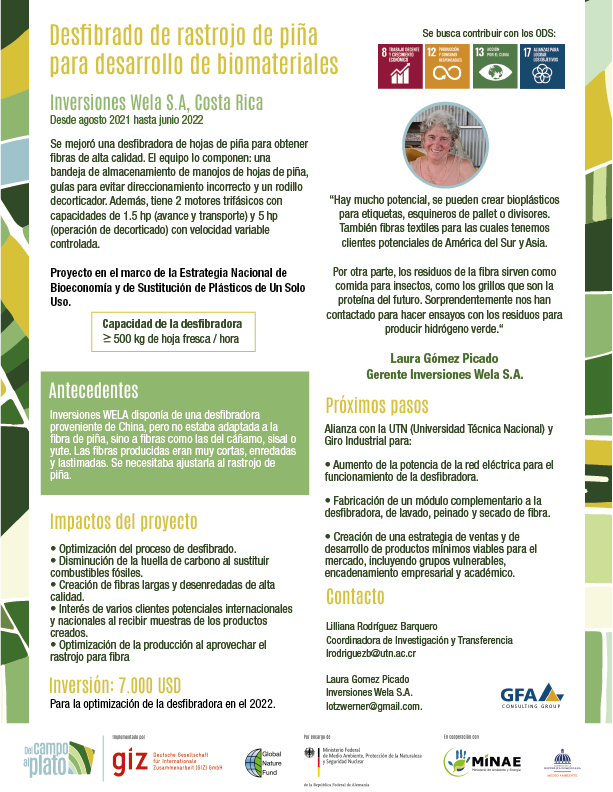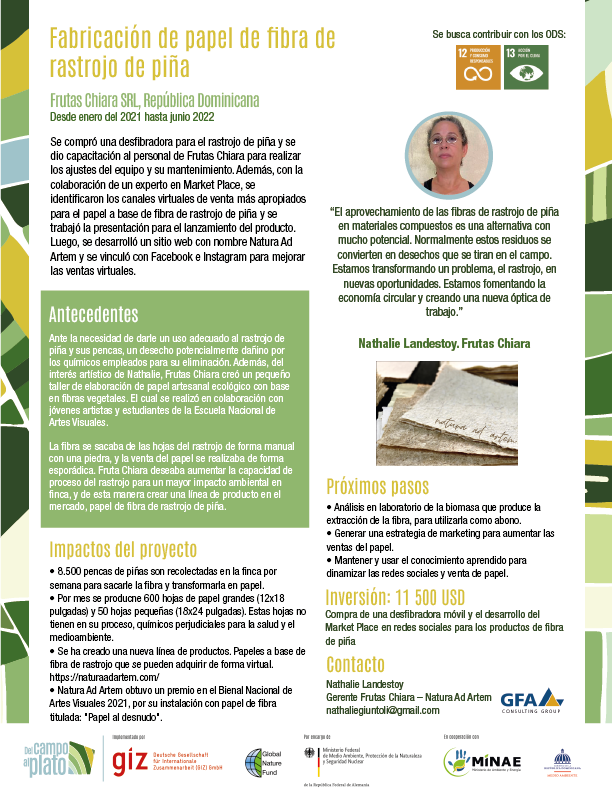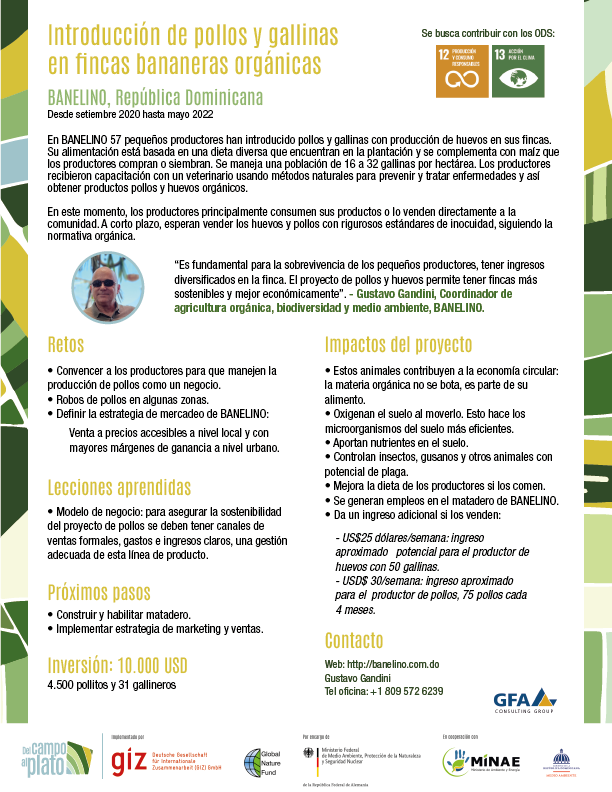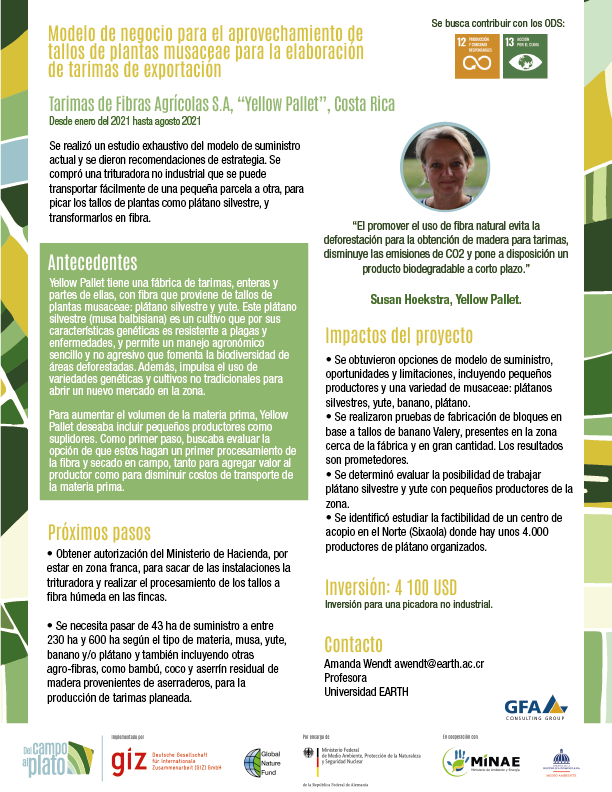Green business
Ancestral agroforestry system
Costa Rica
The UCANEHÜ Association of Small Organic Farmers designed a more efficient pineapple production model that respects ancestral methods. To achieve this, training workshops in organic pineapple management were provided and the necessary machinery was acquired to produce organic compost and other bioinputs.
The project raised awareness of the potential of sustainable crops and increased pineapple cultivation in the association. UCANEHÜ’s agroforestry system was shared at the European Agroforestry Conference in Italy in 2022. There are plans to build forest nurseries and a cooling plant for pineapples.
Incorporation of apiaries in banana plantations
Dominican Republic
Between 2021 and 2022, Cooprobata installed apiaries in banana plantations and the producers were trained in beekeeping production, hive management, honey harvesting, hive multiplication, queen rearing, and parasite and disease control. The producers’ families were involved in the project and the product was sold on the local market.
Thanks to the project, the producers can generate up to 30 gallons of honey per year. In addition, the banana plantations will be managed without the use of chemicals that affect the bees, and pollination will favor habitat continuity and increase biological biodiversity.
Pineapple fiber handicrafts
Dominican Republic
ASOPROPIMOPLA purchased a shredder to make use of the pineapple stubble that is normally discarded. The staff was trained in the use of this machinery and other members of the association learned how to make products from the pineapple fiber, such as shoes that they plan to sell.
The pineapple stubble, which usually takes months to decompose or ends up being burned, has proven to be suitable for creating handicrafts and footwear. Six different shoe designs have been created, as well as an exhibition space for the products at ASOPROPIMOPLA’s facilities. There are plans to hold a launch event for the shoe line and to export the weavings abroad.
Development of biomaterials with pineapple fibers
Costa Rica
Between 2021 and 2022, Inversiones Wela upgraded its pineapple leaf shredder to obtain high quality fibers. This project was carried out within the framework of the National Strategy for Bioeconomy and Replacement of Single-Use Plastics.
Thanks to this optimization, the shredder can now process more than 500 kg of fresh pineapple leaves per hour. This has helped reduce the carbon footprint by substituting fossil fuels, and has aroused the interest of potential international and national customers who received product samples. There are plans to create a sales strategy for pineapple fiber-based products.
Manufacturing of pineapple fiber paper
Dominican Republic
Frutas Chiara purchased a shredder for pineapple stubble and trained its personnel in the use and maintenance of the machinery. The most appropriate virtual sales channels for the pineapple fiber paper were identified and work was done on the presentation for the product launch. A website was also developed and social media channels were created to improve virtual sales.
Thanks to the project, 600 large and 50 small paper sheets can now be produced per month, which does not require the use of harmful chemicals. The project received an award in the National Visual Arts Biennial 2021. It is planned to generate a marketing strategy to increase sales of the paper.
Raising chickens on banana farms
Dominican Republic
57 producers from BANELINO introduced chickens and hens for egg production on their organic banana farms. The chickens feed on what they find on the plantation and are supplemented with corn that the farmers buy or plant. The farmers mainly consume their products or sell them to the community.
The animals have contributed to the circular economy and oxygenate the soil by moving it, which makes the microorganisms in the earth more efficient. In addition, the chickens provide nutrients to the soil and consume insects and other animals with pest potential. The sale of the chickens and eggs brings additional income to the farmers.
Production of export pallets
Costa Rica
In 2021, small producers from the association Tarimas de Fibras Agrícolas, commissioned by Yellow Pallet, developed a project to produce export pallets from wild banana plant stems. For this purpose, a study of the current supply model was carried out and strategy recommendations were made. A small transportable shredder was purchased to chop the banana stems and transform them into fiber.
Through the project, supply model options, opportunities and constraints were determined. Tests were also conducted on the manufacture of blocks based on the stems of other banana species. The next step in the project is to expand production and to include other fibers such as bamboo, coconut and residual sawdust.
